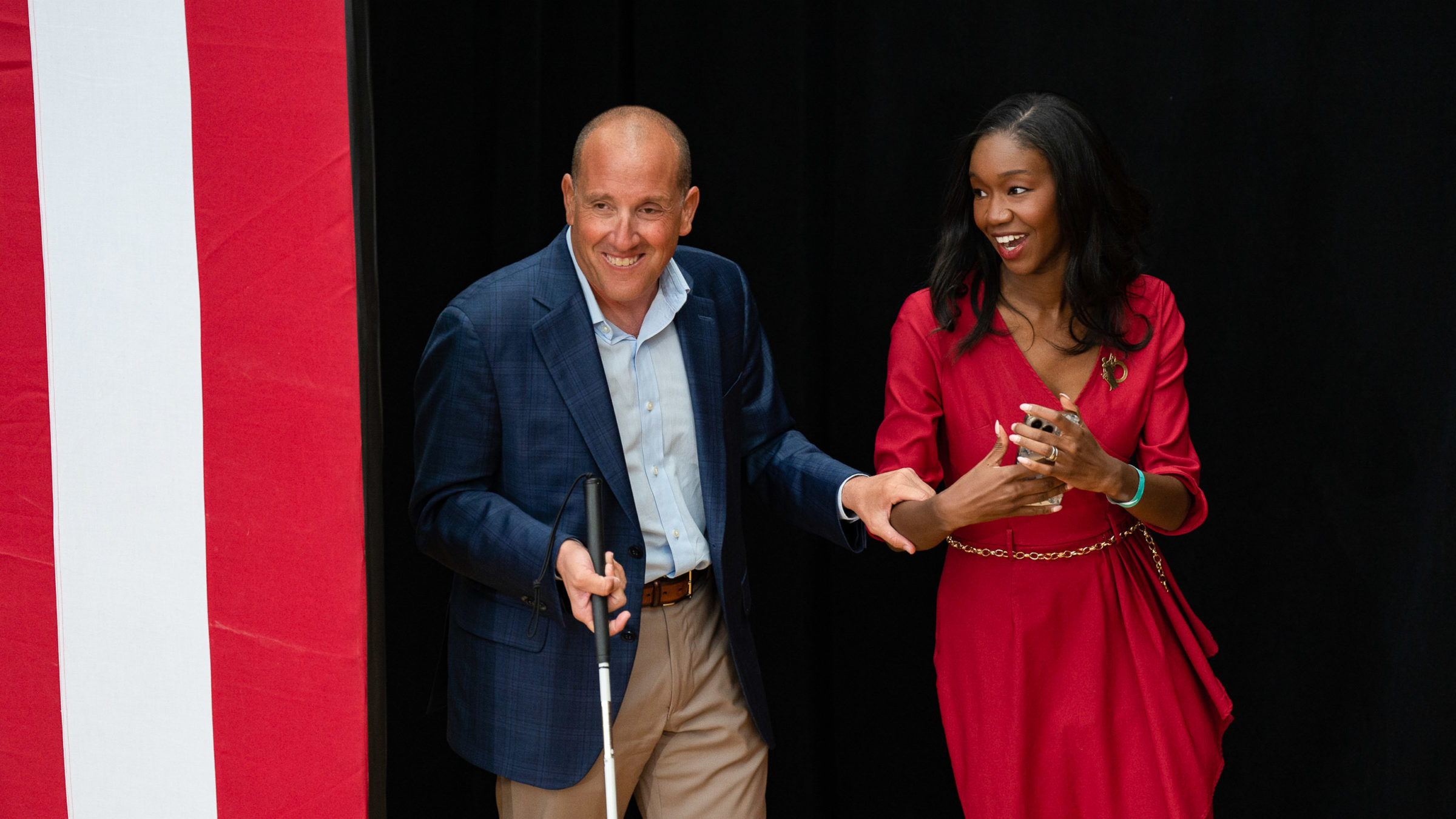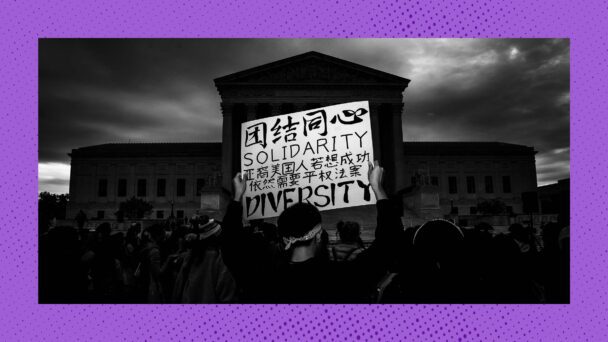The Michigan Supreme Court took an important step towards a more inclusive democracy last week. And then promptly took two steps back.
On New Year’s Day, Justice Kyra Harris Bolden took her oath of office and became the first Black woman ever to ascend to the state’s highest court. Bolden was driven to law school by her family history—after her great-grandfather was lynched, his murderers were acquitted by an all-white jury. Bolden went on to serve as a criminal defense attorney and then in the state legislature. When Governor Gretchen Whitmer announced the appointment last year, she said that Bolden, as a Black woman and the mother of a newborn, would “bring a unique perspective” to the court “that has been too long left out.”
But as it turns out, not all “unique” or “long left out” perspectives are welcome in the judiciary. One of Bolden’s first acts on the bench was hiring a law clerk who spent much of his young adult years behind bars; Peter Martel, 48, was incarcerated in Michigan between 1994 and 2008 for robbing a Flint-area convenience store and shooting at police officers while fleeing. Bolden’s colleague on the bench, Justice Richard Bernstein, responded to news of Martel’s hire with relentless public criticism, describing it as a “slap in the face to every police officer in Michigan.” Privately, he gave Bolden the silent treatment, telling a local news outlet, “I’m no longer talking to her. We don’t share the same values.”
Peter ultimately resigned after just one day on the job. Bolden announced that he “did not want to be a distraction or in any way divert the Court from its important work.”
I’ve known Pete Martel for at least a decade. He is a good man, smart & talented leader, and someone who deserved this chance.
People who are formerly incarcerated shouldn’t be shut out of key positions. We should value the skills & experiences of qualified people like Pete! https://t.co/ULxDyPKfif
— Stephanie Chang (@stephanielily) January 5, 2023
Bernstein’s treatment of Martel exemplifies the courts’ treatment of criminalized people, indefinitely confining them to one side of the defendant’s table and denigrating them as unqualified for full participation in the institutions of a democratic society. A legal system can’t treat criminalized people and the communities they come from fairly while simultaneously excluding them as forever unfit for the administration of justice. Judges whose concept of policing has about as much nuance as Paw Patrol infect the legal system with bias in favor of incarceration and perpetual punishment.
Peter Martel is, by all accounts, the paradigmatic example of the prisoner who turns his life around. Roughly thirty years ago, Martel robbed a convenience store and shot at a police officer in his efforts to escape. He pled guilty to armed robbery and assault with intent to do great bodily harm and spent 14 years in prison, a decade of which was spent in solitary confinement. While incarcerated, he began pursuing an education and helped other prisoners with their appeals. He kept working with people in prison after his release; he also completed an undergraduate degree, graduated from law school, passed the Michigan Bar Exam, and is pursuing a Ph.D. at the University of Michigan, where his research focuses on the criminal legal system and whether juries are representative of the communities they’re drawn from.
At Michigan, Martel is a student of none other than former Michigan Supreme Court Chief Justice Bridget McCormack, whose vacated seat Bolden just filled. McCormack said of Peter and his short-lived work for the court, “I honestly can’t think of anything in a justice system that we value more—we should support people who succeed at redemption.”

Bernstein and Bolden on the campaign trail together in October 2022 (Photo by Dominick Sokotoff/SOPA Images/LightRocket via Getty Images)
Bernstein argued that such support has limits: Hiring Peter was “a step too far,” he said, as “there are certain jobs you should never be allowed to have after you shoot at a police officer.” Bernstein described himself to local news as “intensely pro-law enforcement,” and added that he was “completely disgusted” by the notion that someone convicted of shooting at a police officer could be involved in making decisions in cases that may affect police officers. For Bernstein, publicly scolding a colleague for employing a returned citizen was consistent with his role as a neutral arbiter.
Bernstein said he fully supports second chances. He also said they’re beside the point in this instance. Speaking to Michigan Public Radio, Bernstein asserted that the issue was not whether Martel is redeemed, but whether he is “an appropriate fit for this specific job dealing with the issues that the court has to deal with, dealing with the people the court has to deal with.” Bernstein further maintained that Martel might be well-suited to make a difference “in an advocacy role,” but that employees of the court “should not be advocates.”
The irony here is stunning. Bernstein chastised Bolden for “making a political statement” by hiring Martel without considering that his opposition to that hiring could have political meaning, too. Bernstein said that Martel isn’t an “appropriate” choice to work in the legal system because of his time on the wrong side of it. But Bernstein’s “intense” support for cops and “disgust” with Martel’s hiring are purportedly unbiased sentiments with no bearing on Bernstein’s decisions in cases that will affect police officers and criminal defendants.
This isn’t a mere hypothetical: The Michigan Supreme Court will be hearing oral argument later this week to determine, among other things, whether police officers coerced a defendant to make a self-incriminating statement. If I were the defendant in that case, I wouldn’t think I could count on the court to consider the possibility that the police weren’t on their best behavior.
Richard Bernstein’s biography included on the website of the honor society he is a member of reads: “Life experience is what makes you who you are. The more experiences, the more you understand adversity and discrimination, the better you are in a position like this.” pic.twitter.com/CJoA11uJB0
— Samuel J. Robinson (@samueljrob) January 9, 2023
On Monday, Bernstein issued a statement in which he apologized to Bolden, and asserted a commitment to advancing their “many shared values,” including “immediately working to expand opportunities in the legal field for those who have repaid their debts to society.” It is unclear whether that commitment includes welcoming back Martel, who also received an apology from Bernstein in the statement, but only for the intrusions on his privacy, not for Bernstein’s assertion that he is categorically unqualified to help judges apply the law.
Bernstein’s fawning reverence for the police should be no less evidence of bias than wearing an ACAB shirt to jury duty. He has no reservations about declaring it, however, because the American legal system conflates commitment to incarceration and punishment with objectivity and fairness. People like Bernstein label any perceived deviation from the pro-police, mass incarceration, and collateral consequences baseline as advocacy to be purged from the legal system. This enforcement of faux-neutrality equates proper, sober judicial job performance with joining a fan club for the boys in blue.
Limiting the permissible range of experiences has tangible impacts on jurisprudence. The overrepresentation of former prosecutors and corporate lawyers among both state and federal judges is inseparable from the state’s criminalization of the poor and protection of capital. A 2022 report by the American Bar Association showed that 78 percent of federal judges are white and 70 percent are men. This homogeneity too has consequences. Mistaking judges’ lack of perspective for lack of bias makes it easier for regular people to acquiesce to their judicial decisions, and easier for the law to serve the interests of the powerful by default.
Bernstein was correct about one thing: the issues arising from the hiring of Peter Martel go to the heart of what courts are supposed to do. But he was wrong about what that is. Courts are supposed to fulfill the promise of equal justice under law, not hold thirty-year-old grudges on behalf of cops. Martel would have made the Michigan Supreme Court more just, and his lost opportunity is a loss for the people it is supposed to serve.




